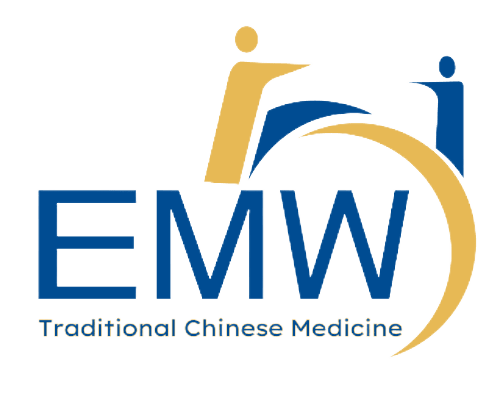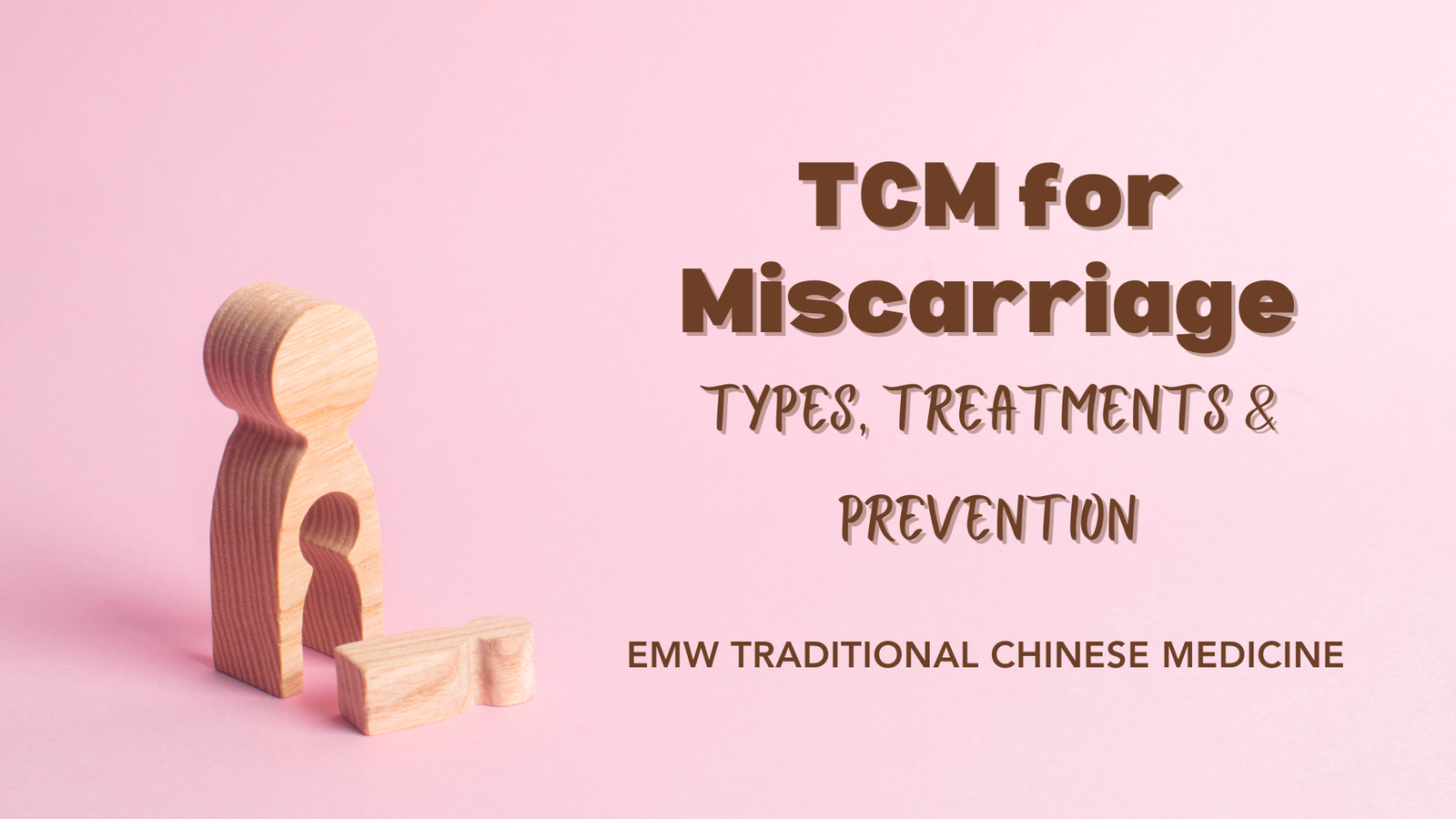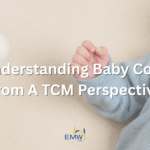Miscarriage, or pregnancy loss, is the spontaneous loss of a pregnancy before the 20th week of gestation. This article explores how TCM can help treat and prevent miscarriage, offering support and hope to those affected.
What is a Miscarriage?
Miscarriage, or pregnancy loss, is the spontaneous loss of a pregnancy before the 20th week of gestation. The majority of miscarriages occur in the first trimester, before the 12th week of pregnancy.
Miscarriages are unfortunately a relatively common occurrence. It is estimated that about 10-20% of confirmed pregnancies end in miscarriage, but the actual number may be higher due to early miscarriages that go unnoticed or unreported. Late miscarriages, which occur after the 12th week of pregnancy, are less common but can still happen.
Discussing miscarriages can be a sensitive subject, but it’s crucial to increase awareness and offer aid to those who have gone through this heartbreaking experience.
In Singapore, like many other countries, there are support systems accessible to individuals and couples who have faced pregnancy loss. Seeking medical attention and emotional assistance as necessary is crucial for women who have undergone a miscarriage.
Types of Miscarriage
There are several different types of miscarriage, which are classified based on the timing and circumstances of the pregnancy loss. Here are some common types of miscarriage:
1. Chemical Pregnancy
Chemical pregnancy, sometimes called biochemical pregnancy, is a very early pregnancy loss that occurs shortly after implantation of the fertilized egg in the uterus. It is called a chemical pregnancy because it can only be detected through chemical tests, such as blood or home pregnancy tests, and not through ultrasound imaging.
With a chemical pregnancy, you often won’t experience any signs or symptoms. You’ll likely bleed around the time your period is due, or at most, a few days later, heavier or more painful than usual. You may also pass a few small blood clots. The pregnancy hormone levels in your blood or urine are usually lower than in a healthy pregnancy, and they may start to decrease rather than increase over time.
This can happen for a variety of reasons, including chromosomal abnormalities in the developing embryo, hormonal imbalances, or other health issues.
Chemical pregnancies are relatively common, occurring in up to 50% of all pregnancies. While they can be disappointing and emotionally difficult for couples trying to conceive, chemical pregnancies are usually random, ‘one-off’ problems.
However, if you experience multiple chemical pregnancies, you should speak with your healthcare provider to determine if there may be an underlying issue that needs to be addressed.
2. Blighted Ovum
Blighted ovum, also known as an anembryonic gestation, is a type of early pregnancy loss that occurs when an early embryo attaches to the wall of the uterus yet never develops or stops developing, is resorbed, and leaves an empty gestational sac.
It is usually discovered between the 8th and 13th week of pregnancy and diagnosed by an ultrasound scan when an empty gestational sac without a heartbeat is seen. With a blighted ovum, you may experience pregnancy symptoms like sore breasts, nausea, and fatigue because the pregnancy hormones in your body may be elevated and continue to be high for some time after the embryo stops developing.
Again, a blighted ovum is a chance event and the cause of it is thought to be chromosomal abnormalities in the developing embryo. Treatment for blighted ovum typically involves a procedure called dilation and curettage (D&C) to remove the gestational sac from the uterus.
While the physical recovery from a blighted ovum is relatively quick, it can be emotionally distressing for the woman and her partner. Counselling and support are often recommended to help cope with the loss.
3. Missed Miscarriage
Missed miscarriage, also known as silent or delayed miscarriage, is a type of miscarriage in which the embryo or fetus dies, but the body has not recognized the pregnancy loss or expelled it yet. In other words, the pregnancy stops developing, but you may not experience any symptoms or signs of miscarriage.
In most cases, missed miscarriage is diagnosed during a routine prenatal ultrasound, where the healthcare provider does not detect a heartbeat or any signs of fetal development. However, some women may experience symptoms such as vaginal bleeding or cramping, which may prompt them to seek medical attention.
Fetal chromosomal abnormalities are still the most common cause of missed miscarriages. Once a missed miscarriage is diagnosed, you may be offered several options for management, depending on your individual circumstances. These may include expectant management (waiting for the body to expel the pregnancy tissue naturally), medication to induce miscarriage, or a D&C procedure to remove the pregnancy tissue from the uterus.
While the experience can be emotionally and physically challenging, most women go on to have healthy pregnancies in the future.
4. Recurrent Miscarriage
Recurrent miscarriages are defined as 3 or more miscarriages in a row, regardless of if you have had any healthy pregnancies. This is rare and affects 1 in 100 couples trying to conceive.
For recurrent miscarriages, karyotyping, ultrasound scans and/or blood tests may be offered to identify the underlying cause. Karyotyping can identify chromosomal abnormalities, ultrasound scans can examine the structure of the cervix and the uterus, and blood tests can look for high levels of lupus anticoagulant and antiphospholipid antibody.
However, in only about 50% of recurrent miscarriages, the cause is identified. Even if your doctor cannot find a definite reason for the miscarriages, you still have a good chance (3 out of 4) of having a healthy birth.
Risk Factors for Miscarriage
While the causes of miscarriage can be complex and often remain unknown, there are several risk factors that can increase the likelihood of experiencing a miscarriage.
1. Advanced Maternal Age
One of the extensively documented factors contributing to recurrent miscarriages is the advanced age of the mother. As women grow older, both the quality and quantity of their eggs typically diminish, posing challenges in establishing and sustaining a successful pregnancy.
Women who surpass the age of 35 face an elevated likelihood of encountering recurrent miscarriages due to the increased risk of genetic abnormalities within the eggs. However, it’s essential to remember that many women over 35 have healthy pregnancies, so age alone does not determine the outcome.
2. Chromosomal Abnormalities
Chromosomal abnormalities in either the mother or the father can significantly increase the risk of recurrent miscarriage. These abnormalities can lead to developmental problems in the embryo that are incompatible with life, often resulting in miscarriage.
In such cases, advances in genetic testing may be recommended to identify chromosomal abnormalities and guide treatment options, such as in vitro fertilization (IVF) with pre-implantation genetic testing.
3. Hormonal Imbalances
Hormonal imbalances, such as polycystic ovary syndrome (PCOS) and thyroid disorders, can disrupt the delicate balance necessary for a pregnancy to progress successfully. These imbalances may lead to difficulties in conceiving or maintaining a pregnancy, potentially resulting in recurrent miscarriage. Managing these conditions with medication and lifestyle changes can often improve the chances of a successful pregnancy.
4. Uterine Abnormalities
Uterine abnormalities in their structure or function, such as a uterine septum, fibroids, and polyps, can make it difficult for a pregnancy to develop and progress normally. These abnormalities may cause impaired implantation, disrupted blood flow, or placental problems, increasing the risk of miscarriage. However, it’s essential to recognize that the impact of a uterine abnormality on pregnancy outcomes can vary widely depending on the severity of the abnormality, its specific location, and other individual factors.
5. Immunological Factors
Some studies have suggested that immune system dysregulation or autoimmune disorders, such as antiphospholipid syndrome (APS), and elevated or abnormal natural killer (NK) cells activity, may play a role in some cases of recurrent miscarriage. These disorders can lead to the immune system mistakenly attacking the developing embryo or the lining of the uterus, making it difficult for a pregnancy to progress. The diagnosis and management of immunological factors in recurrent miscarriage can be complex and may involve consultation with specialists such as reproductive immunologists or rheumatologists.
6. Lifestyle & Environmental Factors
Lifestyle factors such as smoking, excessive alcohol consumption, illicit drug use, and obesity can increase the risk of miscarriage. Embracing a healthy lifestyle before and during pregnancy can greatly enhance the likelihood of a successful pregnancy.
6. Infections and Chronic Illnesses
Infections and chronic illnesses, such as poorly controlled diabetes and blood clotting disorders (eg, thrombophilia), can affect the mother’s overall health and the health of the developing foetus, potentially leading to miscarriage. Advances in medical care and proper management of these conditions can often mitigate the associated risks.
A single miscarriage is a relatively common occurrence, and it does not necessarily mean that future pregnancies will also end in miscarriage. Most women who experience one miscarriage go on to have successful pregnancies.
However, if a person has had multiple miscarriages, it may be an indicator that there are underlying issues that need to be addressed. It’s important for individuals who have experienced multiple miscarriages to work closely with their healthcare provider to identify and address these issues. In many cases, addressing the underlying issue can significantly improve the chances of a successful pregnancy.
Traditional Chinese Medicine (TCM) and Miscarriage
Understanding Miscarriage in TCM
TCM has a long history of understanding of miscarriage, with TCM practitioners having observed and documented various aspects of this condition, including symptoms, patterns of disharmony, and treatment approaches.
In TCM, the recognition of miscarriage involves noting a range of symptoms that often accompany it, such as vaginal bleeding, abdominal discomfort, and a sensation of heaviness in the lower abdomen. These symptoms can vary depending on individual constitution and the underlying causes.
TCM places a strong emphasis on pattern differentiation (辨证分型), which involves identifying the core imbalances or disharmonies within the body that contribute to miscarriage. Different patterns, including blood stasis, Qi and blood deficiency, Kidney deficiency, or heat in the blood, can potentially lead to miscarriage. TCM practitioners employ diagnostic methods such as examining the pulse and tongue, to determine the specific pattern of disharmony in each patient.
When it comes to treatment, TCM strives to restore balance in the body and address the root causes of miscarriage. Treatment options may include Chinese herbal medicines, acupuncture, dietary adjustments, and lifestyle recommendations. The choice of treatment depends on an individual’s pattern differentiation. For instance, if blood stasis is identified, TCM may use herbal formulas and acupuncture techniques to enhance blood circulation and remove obstructions. In cases of qi and blood deficiency, TCM would employ tonifying herbs and specific acupuncture points to strengthen the body’s Qi and blood.
TCM adopts a holistic approach in managing miscarriage, considering the patient’s overall health, constitution, and the specific disharmonies present. Its goal is to restore equilibrium and harmony within the body to promote a healthy pregnancy and reduce the risk of further miscarriages. It’s important to note that TCM complements modern medical care, particularly for severe medical conditions, and individuals should seek guidance from qualified TCM physicians for personalized treatment.
Chinese Herbal Medicine (CHM) for Miscarriage Support
Chinese herbal medicine, a cornerstone of TCM, comprises a vast array of botanical remedies with specific properties to address various health concerns. In the context of miscarriage, certain herbs are renowned for their ability to strengthen the uterus, regulate hormones, and promote overall reproductive health.
Evidence suggests that herbs such as Dong Quai (Angelica sinensis), Gui Ban (Testudinis Carapax), and Bai Shao (Paeonia lactiflora) exhibit uterine tonic properties, enhancing blood circulation to the reproductive organs and supporting embryo implantation. Moreover, herbs like Shan Yao (Dioscorea opposita) and Dang Gui (Radix Angelicae Sinensis) are known for their hormone-balancing effects, potentially mitigating the risk of hormonal disruptions implicated in miscarriage.
Acupuncture for Miscarriage
Acupuncture, another integral component of TCM, involves the insertion of fine needles at specific points along the body’s meridian pathways to regulate Qi (vital energy) flow. In the context of miscarriage, acupuncture offers a non-invasive yet potent therapeutic intervention to address both physical and emotional aspects of this condition.
Research indicates that acupuncture can effectively reduce stress, anxiety, and depression associated with miscarriage, thereby promoting emotional well-being and resilience. Additionally, acupuncture sessions tailored to individual needs can help regulate menstrual cycles, improve blood circulation to the uterus, and enhance overall reproductive function, thereby reducing the likelihood of future miscarriages.
Combining CHM and Acupuncture: A Synergistic Approach
While Chinese herbal medicine and acupuncture offer distinct therapeutic benefits, their synergistic integration can amplify treatment outcomes for individuals experiencing miscarriage.
By customizing herbal formulations and acupuncture protocols based on each patient’s unique constitution and diagnostic patterns, TCM practitioners can provide personalized care that addresses both the root causes and symptoms of miscarriage.
Clinical Studies
CHM and acupuncture have shown promising results in helping prevent miscarriage, according to several clinical studies:
- Clinical studies have demonstrated that CHM can improve pregnancy outcomes by enhancing maternal-fetal immune function, reducing inflammatory reactions, and regulating hormone levels [1].
- A systematic review of nine trials involving 861 women found that a combination of CHM and Western medicines may be more effective than Western medicines alone in terms of continuing pregnancy rates and live birth rates[2].
- A randomized controlled trial found that women receiving acupuncture for threatened miscarriage experienced a statistically significant reduction in symptoms like bleeding, cramping, and back pain compared to a control group[3].
What to Do After a Miscarriage
1. Finding A Cause
It’s completely normal to wonder why a miscarriage happened. While it might not always be possible or necessary to find a cause, it can be important for a few reasons, like guiding treatment and prevention, finding emotional closure and helping with future plans.
- Treatment & prevention: In some cases, knowing the cause can lead to specific treatments that might help prevent recurrent miscarriages. For example, if a hormonal imbalance or a blood-clotting disorder is identified, appropriate treatments can be prescribed.
- Emotional closure: Finding out the cause can also provide some individuals with a sense of closure and understanding, which can be emotionally reassuring during a difficult time.
- Future planning: Understanding why a miscarriage happened can also inform your decisions about when to try to conceive again, whether some lifestyle changes are needed, or if there are precautions to take in future pregnancies.
However, it’s important to note that finding a cause is not always possible. Miscarriages can happen for a wide range of reasons, and sometimes the cause remains unexplained despite extensive testing. Additionally, the cause of a miscarriage in one pregnancy may not necessarily apply to future pregnancies, as each pregnancy is unique.
2. Emotion Coping
Managing your emotions after a miscarriage is a crucial part of the healing process and moving forward. Coping with the emotional impact of a miscarriage can be challenging, but there are several strategies and techniques that can help you navigate this difficult time:
- Allow yourself to grieve: It is important to understand that it’s entirely normal to experience a range of emotions, including sadness, anger, guilt, and even relief. Grieving is a natural process, and it’s essential to allow yourself to feel and express your emotions. Learning more about miscarriage, its causes, and the grieving process can provide you with a better understanding of what you’re going through and normalise your feelings.
- Seek support: Reach out to your partner, family members, and close friends for emotional support. Sharing your feelings with loved ones can be comforting and can help you feel less isolated in your grief. If you find it challenging to manage your emotions or experience prolonged or severe distress, consider reaching out to a professional for guidance. You don’t have to go through this difficult time on your own, as there are resources available to assist you.
- Self-care: Prioritise self-care by dedicating time to rest, maintaining a healthy diet, and engaging in activities that bring you joy and relaxation. Taking care of your physical and emotional well-being is crucial during this period. Be patient with yourself and allow your healing to progress at its own pace.
Remember that everyone’s grief process is unique, and there is no “right” or “wrong” way to cope with a miscarriage. It’s essential to find the coping strategies that work best for you.
3. Trying Again
Many individuals often wonder when it’s safe to try getting pregnant again after experiencing a miscarriage. There is no specific timeframe set in stone for this, as it largely depends on your emotional and physical recovery, and this varies from one woman to another. However, there are some key points to consider:
- No sexual intercourse until the bleeding has completely stopped to avoid the risk of infection.
- Generally, your gynaecologist may advise waiting for at least one normal menstrual period, if not two, before attempting to conceive again. In cases of late miscarriage, recurrent miscarriage, molar pregnancy, ectopic pregnancy, illness or infection, a longer waiting period may be necessary, potentially until certain underlying conditions are resolved.
In most instances, the optimal time to try for pregnancy again is when both you and your partner feel physically recovered and emotionally prepared. If you’re not ready to conceive immediately, it’s advisable to use contraception to prevent unintended pregnancy until you feel ready for another pregnancy.
Prevention
Healthy Lifestyle Choices
Miscarriage, a heartbreaking experience for many, often occurs without a clear cause. While some factors, such as chromosomal abnormalities, are beyond prevention, there are proactive steps individuals can take before or during pregnancy to reduce their risk. Here are evidence-based do’s and don’ts to consider:
Do’s:
- Eating a healthy balanced diet: Prioritize a diet rich in fruits, vegetables, whole grains, lean proteins, and healthy fats. Nutrient-dense foods provide essential vitamins and minerals crucial for reproductive health and fetal development.
- Managing healthy body weight: Maintaining a healthy weight range can optimize fertility and reduce the risk of complications during pregnancy, including miscarriage.
- Staying active: Engage in regular physical activity tailored to your fitness level and preferences. Exercise promotes circulation, regulates hormones, and supports overall well-being, contributing to reproductive health.
- Antenatal care: Schedule preconception appointments with healthcare providers to assess your health status, address any underlying medical conditions, and receive guidance on optimizing fertility and pregnancy outcomes.
- TCM treatment: Consider integrating TCM modalities such as acupuncture and herbal medicine into your preconception care plan. TCM offers holistic support for reproductive health, addressing imbalances that may contribute to miscarriage risk.
Don’ts:
- Smoking: Avoid tobacco use, as smoking has been linked to an increased risk of miscarriage and pregnancy complications. Seek support and resources to quit smoking if needed.
- Drinking alcohol: Minimize or eliminate alcohol consumption, as alcohol exposure during pregnancy can harm fetal development and increase the risk of miscarriage.
- Drinking too much coffee: Limit caffeine intake, including coffee, tea, and energy drinks, as excessive caffeine consumption has been associated with miscarriage risk. Aim to stay within recommended caffeine limits.
- Using illegal drugs: Refrain from using illicit substances, as they pose serious risks to both maternal health and fetal development, increasing the likelihood of miscarriage and other adverse pregnancy outcomes.
By implementing these evidence-based strategies, individuals can take proactive steps to optimize their health and reduce their risk of miscarriage before conception. Prioritizing preconception care, adopting healthy lifestyle habits, and seeking appropriate medical guidance can lay the foundation for a healthy pregnancy journey.
How EMW treats miscarriage
Personalized TCM Care
Imagine a healing journey where every aspect of your well-being is considered—where treatments are tailored specifically to you, honoring both your emotional and physical needs. This is the essence of TCM. By consulting with our TCM physicians, you can receive the comprehensive support needed to navigate your unique experience with miscarriage safely and effectively.
At EMW, our focus on personalized care ensures that your treatment plan addresses your specific needs. Typically, your plan will include:
- Acupuncture
- Chinese herbal medicine
- Lifestyle and dietary advice
With these modalities, we aim to restore balance and promote healing, providing you with the compassionate and holistic support you deserve.
Conclusion
In conclusion, TCM offers a compassionate and holistic approach to supporting those navigating the emotional and physical challenges of miscarriage. Recognizing miscarriage as a deeply profound life event, TCM addresses both the immediate symptoms and the underlying imbalances within the body. By integrating modalities such as acupuncture, Chinese herbal medicine, and personalised lifestyle and dietary advice, TCM strives to restore harmony and foster healing during this sensitive time. However, it’s essential to seek guidance from qualified TCM physicians to ensure your treatment plan is just right for you.
If emotional or physical distress persists, don’t hesitate to seek further medical evaluation. And remember, it’s important to refrain from starting any new treatments without professional consultation. Your well-being is paramount, and with the right support, you can find a path to healing that resonates with your unique journey.
References:
[1] Li, L., Dou, L., Leung, P. C., Chung, T. K., & Wang, C. C. (2016). Chinese herbal medicines for unexplained recurrent miscarriage. The Cochrane database of systematic reviews, 2016(1), CD010568. https://doi.org/10.1002/14651858.CD010568.pub2
[2] Li L, Dou L, Leung PC, Chung TK, Wang CC. Chinese herbal medicines for unexplained recurrent miscarriage. Cochrane Database of Systematic Reviews 2016, Issue 1. Art. No.: CD010568. DOI: 10.1002/14651858.CD010568.pub2
[3] Betts, D., Smith, C. A., & Dahlen, H. G. (2016). Does acupuncture have a role in the treatment of threatened miscarriage? Findings from a feasibility randomised trial and semi-structured participant interviews. BMC pregnancy and childbirth, 16(1), 298. https://doi.org/10.1186/s12884-016-1092-8
Our TCM Physicians
Principal TCM Physician
- M.Med(TCM Gynaecology)
- B.Sc(Hons) Biomedical Sciences
- Dip. Naturopath
- Ayurvedic Therapist(500hrs)
- Registered TCM Physician (Singapore MOH)
Senior TCM Physician
- M.Med(TCM Acupuncture & Moxibustion)
- B.Sc(Hons) Biomedical Sciences
- Certified Aromatherapist
- Registered TCM Physician (Singapore MOH)
TCM Physician
- M.Med(TCM Gynaecology)
- B.Sc(Hons) Biomedical Sciences
- Registered TCM Physician (Singapore MOH)
TCM Physician
- B.Med(TCM)
- B.Sc(Hons) Biomedical Sciences
- International Board-Certified Lactation Consultant (IBCLC)
- Registered TCM Physician (Singapore MOH)







